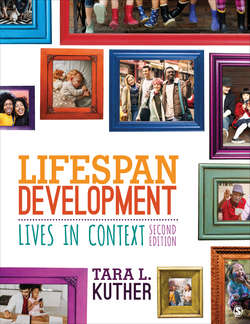Читать книгу Lifespan Development - Tara L. Kuther - Страница 389
На сайте Литреса книга снята с продажи.
Moral Development in Early Childhood
ОглавлениеYoung children’s cognitive capacities and skills in theory of mind influence moral reasoning, how they view and make judgments in their social world (Skitka, Bauman, & Mullen, 2016). Two-year-old children classify behavior as good or bad. They respond with distress when viewing or experiencing aggressive or potentially harmful actions (Kochanska, Casey, & Fukumoto, 1995). By age 3, children judge a child who knocks another child off a swing intentionally as worse than one who does so accidentally (Yuill & Perner, 1988). Four-year-old children can understand the difference between truth and lies (Bussey, 1992). By age 5, children are aware of many moral rules, such as those regarding lying and stealing. They also demonstrate conceptions of justice or fairness (e.g., “It’s my turn,” “Hers is bigger,” “It’s not fair!”). How do these capacities develop?
There are many perspectives on moral development, as discussed in later chapters. Here we consider two classic views of moral development: social learning theory and cognitive-developmental theory. Both consider a young child’s moral values and behavior as first influenced by outside factors. With development, moral values become internalized and moral behavior becomes guided by inner standards.
